- Home
- Frank Delaney
Venetia Kelly's Traveling Show: A Novel of Ireland Page 3
Venetia Kelly's Traveling Show: A Novel of Ireland Read online
Page 3
The Incident of the Animal—I reach for it when I want to remind myself that Mother did have a true grasp of the world, and the way things are. She just lost it for a while. And I reach for the Incident because of the ultimate lesson it taught me—that when something is hurtling toward you, and you know it’s frightening, and you know you’re right about that, it may not always be frightening or dangerous in the way you think. But that doesn’t reduce the fright or the danger. Sometimes its purpose is to bring foreboding—and foreboding can be a friend, but you must listen to it.
The Incident began when the Animal came hurtling down the hill in front of the house one September afternoon.
I have this belief, which I’ve held since a small boy, that I can see at a glance how the world evolved. The wheel? Easy—the rolling of a log suggested the idea, and then they cut a log into disks, and Eureka! Religion? Call on a bigger power to smite a big power—call on something bigger than the wind that’s making such a noise in the leaves, or, more terrifying, thunder. And it also has to be a power that you can’t see. So—invent it. Pray to it long enough and the thunder fades and the wind dies down. Sex? Easiest of all—make sure that the nerve endings in those crucial places are so exciting that we’ll want to go there again and again. Trite? Obvious? Unoriginal? Perhaps—but not at twelve years old.
At any rate, I was standing in the porch, admiring the light again. Thanks to the sun pressing through the stained-glass windows, the floor seemed littered with colored petals. By turning my head just a little I could see how golden the world was outside, how russet and ocher the trees. The green bench under the large beech had just been freshly painted.
We had a white fence that ran all around the property like a priest’s collar. It took years to erect; it came in from the main gate, broke away from the front of the house, and swayed up the hill in a parade of snowy rails. My father always said that as soon as the end of it had been painted it was time to start renewing it: “Like-like-like life itself,” he used to say to me and I never knew what he meant; I do now.
The part of the fence that ran up the hill field had a foolish place on the farm. What was the need to split an already difficult acreage? Especially since we owned all the land? That fence gave us nothing; all it did was run right up through the middle.
That afternoon, though, the fence paid for itself—because its stark white graphic rails showed me the large black object that was galloping along beside it and heading down toward the house. What was it? A wild thing, and terrifying. The gate from the field to the forecourt—and therefore to the house and me—stood wide open. I stared and stared; I couldn’t make out what it was. The thing had legs at the usual four corners; beyond that I couldn’t say much by way of description.
“Mother!” I shouted loud.
Father had gone to Templemore to collect a clock being repaired there by a man whom he liked to meet; this clock maker was, by all accounts, the biggest liar in the county.
She came running—because, as she said later, the fear in my voice would have frightened God.
“What is it, Mother?”
“Well, it’s an animal anyway,” she said.
The Animal’s front bulked twice as large as it should have, the head didn’t sit on the shoulders in a normal manner, and from its chest protruded some massive, indefinable growth.
It had a basic shape—more horse than, say, rhinoceros; more donkey than, say, elephant—but it traveled like no horse or donkey I’d ever seen—or, for that matter, like no rhinoceros or elephant I’d ever imagined. And it seemed agitated—it swung its great lump of a head in all directions, and even at a distance of several hundred yards I could see the flecks of spume spraying from its nostrils. Also, it was huge—higher, broader, and thicker than any horse or cow we had on the farm or in the stables or had ever bred. And bulky as a cliff.
On and on it came, its speed getting up to a near-gallop, loping wildly along by the fence, crashing into the white rails, bouncing off them and smashing into them again; how they didn’t shatter I’ll never know. At any moment it would careen through the gate, pound onto the gravel of the forecourt, and perhaps head straight at the glass porch where we were standing.
My father’s double-barreled shotgun stood in the corner of the porch. He often took a potshot at a juicy pheasant and then lamented the side of his nature that caused him to “Kill-kill-kill God’s creatures.” I looked at the gun, but I knew it would be too small to bring down this thundering black beast. My great-grandfather’s elephant gun, a bell-mouthed blunderbuss, sat on a bracket over the fireplace in Mother’s little study—but what ammunition could we use? My terror grew.
Mother stared as only she can, her eyes narrowing, her body a tall, slim cylinder of concentration. Hands on hips, she peered harder—and then walked out of the house and strode across the gravel to the open gate. Toward the creature!
On came the Animal and my heart came close to stopping. I didn’t know what to do. The manly part of the boy fought the coward, the self-preserver. Should I help? And what assistance could I give? Shouldn’t I be at Mother’s side, indeed ahead of her—but who would run for help if the monster destroyed both of us?
I split the difference, as, when I can, I’ve learned to; I left the porch but didn’t go as far as the gate. And, as I most certainly always do in life, I watched and watched.
The Animal slowed down and I heard its noises. Like a distressed asthmatic it wheezed and spluttered; and it seemed in agony. Explanations for its existence seared through my head: It had come from a family of prehistoric creatures long hidden in a land beneath the caves up in the mountains, and one of their number had now found a way into the outside world and was frightened at being unable to find its way home.
Or it had come from the next farm, the Treacys’. Mr. Treacy was a vet and a breeder, and his house was full of exotic stuffed animals. Maybe he had for years been experimenting at crossing ordinary breeds with exotic animals and this strange hybrid result had broken out of his sheds. Or maybe such a creature had indeed long existed in Borneo, known only to a few adventurers and zoologists. And it had at last been captured and, in circumstances of great secrecy, was being transported to England for a zoo there, but the ship had docked at Waterford to discharge cargo, and when the holds opened the Animal escaped.
I was soon answered. The Animal slowed down to a walk, still heaving its great head. I could hear Mother speaking to it, soothing and soft, “Yes, good boy, good old boy,” and the Animal was responding. Now it had slowed to a saunter. Then it hung a hesitant mooch over toward the gate on which Mother leaned. The creature’s great head drooped lower and lower; I thought it was probably abashed at its own foolish carry-on. And then it stopped, right at the gate. Another miracle from Mother! Whom I had seen juggle plates for a bet. Who could cast a dry fly into a salmon’s mouth from Ballygriffin Bridge. Who could do coin tricks.
Cautious as a fish, I walked over. By the time I got there, and saw Mother stroking the creature’s nose and forehead, and with her sleeve wiping away the foam from the mouth, the Animal had quieted.
Not a prehistoric fugitive from beneath a time-trapped lake in the Galtee Mountains; not a Frankensteinian crossbreed escaped from Mr. Treacy’s sheds; not even an exotic capture from Borneo. This was a massive Clydesdale plow horse, twenty-one hands high if an inch. By way of comparison, our tallest three-quarter-bred was seventeen and a half hands.
Its head seemed distorted because it wore a large plowing collar that had come loose, worked its way around the back, and swung ever wilder the more the horse tried to shake it off, and it had forced the horse to carry its head awkwardly high to one side. As to the growth on the front, a large and decorative knee-length harness medallion had been hung on the horse’s chest, but it got buckled in some collision suffered by the galloping animal, had worked its way up to the horse’s face, and had begun to bite into its flesh, and was thus wedged.
Mother took command. In those days she had
the gift of always being understood. She walked around to the horse’s shoulder and began to pat it further. The poor creature accepted her affection so readily and eagerly that his nuzzling almost knocked her off her feet.
“Get Billy,” she told me. “Tell him to bring a ladder. And go for Mr. Treacy.”
Billy Moloney ran our farmyard, and was constitutionally unable to speak a sentence in the English language without, as Mother put it, “cursing like a sailor.” She and I worked out a method by which I could report his conversation to her; every time he swore I would substitute my father’s euphemism “flock.”
I found him in the milking shed.
“What she want a flockin’ ladder for?”
“A big horse,” I said.
“Big flockin’ horse to want a ladder.”
“He’s very big, Billy.”
“Ah, flock it,” he said. “I’ll get the flockin’ ladder. Jizz, God, you’d swear I do have nothing else to flockin’ do, Jizz, flockin’ wimmen, flock it.”
Billy sometimes bisected words with a profanity: “cata-flockin’-gorically” and “un-flockin’-deniably.” Sometimes he doubled down on his lexicon; my father claimed that he once heard Billy say “cata-flockin’-flockin’-gorically.” As my father remarked, “Prob-prob-probably for emphasis.”
While Billy fetched the ladder, I climbed on my bicycle and rode up the hillside path through our woods to find Mr. Treacy, who followed me down in his truck. He recognized the horse. It belonged to a plowing team that went all over the country giving demonstrations. A week later, when the horse was being collected, the plowing team told us that a rat had spooked the horse, and the horse had bolted. By the time the poor Clydesdale reached us he had traveled more than twenty miles.
That night, with the horse fast asleep in one of our loose boxes, Mother told the story to my father. She turned to me and said, “Why were you so frightened?”
“I didn’t know what it was.”
My father said, “Ask-ask-ask your mother for her lecture on seeing things.”
Mother said, “In this world, there are two of everything. There’s the thing that we see—like this sugar bowl on the table. And there’s the thing we think we see. When the thing we see is the same as the thing we think we see—fine. If it’s not—watch out for trouble.”
She delivered this in that voice of hers that I grew up with—a voice that had no threat in it, a voice that up to then had never been raised at or against me. How could I have anticipated the ferocity, the persistence in this tall, capable woman with her boy’s haircut, who had the most beautiful hands I have ever seen? And, as I’d find out, a capacity to make dreadful errors, and reap terrible harvests.
Most men have three lives, public, private, and secret. My father had four.
The world knew him as a successful general farmer who owned a horse or two. We had dairy, grain, and crops, held in place each season by this warm and well-liked man. When forking out a cowshed or clipping a hedge, he wore the big boots with the hobnails, and the “gaiters” made from the cutoff tops of Wellington rubber boots. He then wore tweed suits when he went to town, and red polka-dot pocket handkerchiefs, a man who was as comfortable with Billy flockin’ Moloney as he was with Professor Fay and his sister, Miss Dora Fay, who came down from Dublin on weekends to the cottage we rented out to them, on the river at the bottom of the farm.
As to his private life, my father exuded kindness and good humor in our house. He had chivalry, even an old-fashioned, mannerly gallantry. In this he wasn’t, I think, a typical Irish farmer—he had a sensibility that went beyond the ordinary male responses of his peers. I watched his care of Mother; I saw him waiting until she started to eat before he lifted his own knife and fork; I saw him racing to fetch things from upstairs that she had forgotten; I saw him clipping articles from newspapers, and leaving them on the desk in her little workroom in the alcove of the window; I saw him handing her more money than she asked for whenever she needed cash; I saw the tiny, myriad ways he expressed his respect and affection for her. For instance, if near at hand, he never let her lift or carry.
Often I saw him come in from the yard in the afternoon just to make her a cup of tea. And I heard them laugh and laugh behind the door of their bedroom at night—after he had made sure in the winter that a fire blazed in the grate there, and in the summer that all the windows were open, with the curtains blowing out like huge white kisses.
Did she behave as caringly to him? I want to say that she did, but the evidence wasn’t abundant. Yet I have to bear in mind that she didn’t have his demonstrative nature. To put it more simply, she seemed more head than heart, and he more heart than head.
Does this explain his actions that notorious night? And the long, anguished weeks afterward? I don’t think so. It may mitigate some of his guilt in the matter, but it would be unfair to put that weight of blame on my mother’s ordinary diffidence. She was, I think, generally blameless.
Blame it, to begin with, on the third life, as fast-flowing, mysterious, and powerful as a subterranean river, a force of which he wasn’t completely in control.
He loved imagination. He loved possibility. He loved that the unexplained and the inexplicable could exist in the world and defy any reasoned argument. In this arena, he most loved human emotion and the means by which it got expressed.
I think now that he was a little ashamed of this part of himself and tried to hide it. But I always knew; I had seen what books he read; I knew that he loved the theater and acting, that his favorite play was that feast of rollicking possibility A Midsummer Night’s Dream—and you could scarcely get a greater work of the imagination than that, with its magic world, its sprites called Cobweb and Mustardseed, its weaver turned into a donkey, and so forth. I’d take a strong bet that not another farmer’s bedroom in the county had that—or much of anything else—as bedside reading.
Mother, from what I could see, didn’t raise much of a glass to this, shall we say, romantic side of my father. She did, however, blush at a compliment from him, or grow tears in her eyes at a Christmas gift. There was a time when I thought this had caused the gulf between them—that he was too romantic and effusive, and she too practical and shy.
But no. That wasn’t it. Wrapped inside this third life of my father’s lay a fourth, the part of him that he couldn’t see. In there, the trouble lay like a bomb that we never heard ticking.
Perhaps this is the moment to meet the Fays—Professor Cyril Fay and his sister, Miss Dora. Professor Fay was a historian who had a hunger for influence, and his sister a mathematician who loved words and language and stories. Acquainted with one of Mother’s sisters, they began to rent the cottage on our farm for weekends, and then for stretches of the year during the long university vacations.
Both played their parts in this story. But how differently they affected me—even though they were twins and did many things together, and often very similarly. In many ways, they defined the term “unidentical twins;” he small and with no neck, she gooselike, thin as a knitting needle, and a good deal taller (though that wouldn’t have been difficult). Only in one respect could a stranger tell that they were related—they walked identically. It was Mother who pointed it out—a fast pace, with a surge on every third step—one-two-three, one-two-three.
I can run my first memory of the Fays like a film. A Saturday afternoon in summer, I about eight years old; Mother and I walked down the fields to the river, and then along the riverbank path to the cottage; Mother carried a round Red Riding Hood wicker basket full of peas, gooseberries, new potatoes, and Lily Moloney’s fresh soda bread hot from the oven. As we reached the cottage, Mother told me that we were going to meet “very clever people. It will do you well to know them. Very clever.”
Miss Fay wore round tortoiseshell spectacles that gave her a surprised look. She sat close to the river on a chair that she’d taken from the cottage, reading so intently that her body bent to the chair’s curve.
In the distan
ce a man—“the professor,” Mother whispered—walked away from us in a straight line. As I watched, he turned back and walked toward us just as briskly—and ignored us. Then he turned and walked again in the opposite direction at the same brisk pace, one-two-three, and then turned again and came back. I saw that as he approached us he was looking down and to his right—he had, we discovered, marked out with wooden pegs a distance of 110 yards.
“Sixteen of these makes a mile,” he later told us.
Mother coughed, and the lady looked up from her book and blinked at the sun. Her warmth to Mother still comforts me.
“I know exactly who you are and I’m Miss Dora Fay and that’s my brother over there; he’s a big walker.” When she shook hands with me she said, “If I have letters to post, or need milk, will you be my Mercury?”
I, because I had been raised quietly, nodded and said nothing, but Miss Fay asked, “Let me see your ankles.”
She bent a little and peered—I was wearing sandals and no socks—and she straightened up, smiled, and said, “Yes, I can definitely see wings sprouting there.”
She had prominent front teeth, Miss Dora Fay. She could, as they say, eat a banana through a tennis racket, and she was, I now think, my first true love. As first loves are capable of doing, she later inspired me, and gave me shelter and comfort.
When she died, an old lady, I was with her. I wept salt tears, and helped to carry her coffin to her grave. She bequeathed me all her books, and from time to time I find her lovely wide handwriting in the margin of something, always a thoughtful note, always inquiring, always seeking to expand knowledge, never judgmental.
I also have certain scientific instruments that she gave me; they saved my life; I keep them in a bank vault box, and I look at them every year.
She called her brother to meet us, but he waved her away and continued his walking. Miss Fay raised an eyebrow to Mother that said, “You and I understand these things.”

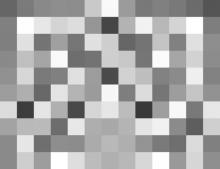 Tipperary: A Novel of Ireland
Tipperary: A Novel of Ireland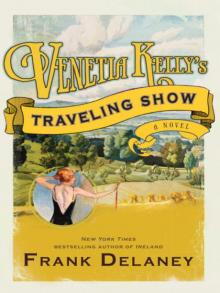 Venetia Kelly's Traveling Show: A Novel of Ireland
Venetia Kelly's Traveling Show: A Novel of Ireland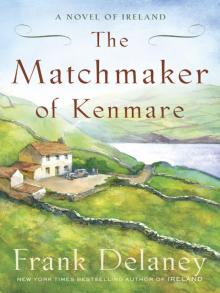 The Matchmaker of Kenmare
The Matchmaker of Kenmare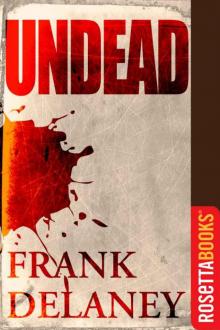 Undead (Kindle Single)
Undead (Kindle Single)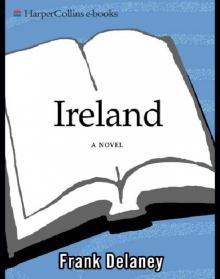 Ireland
Ireland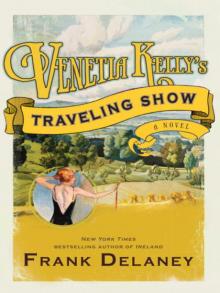 Venetia Kelly's Traveling Show
Venetia Kelly's Traveling Show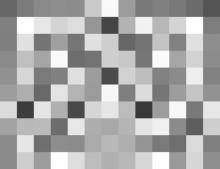 Tipperary
Tipperary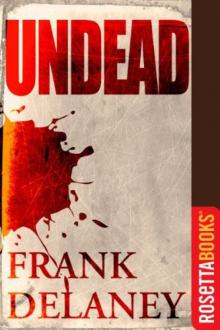 Undead
Undead